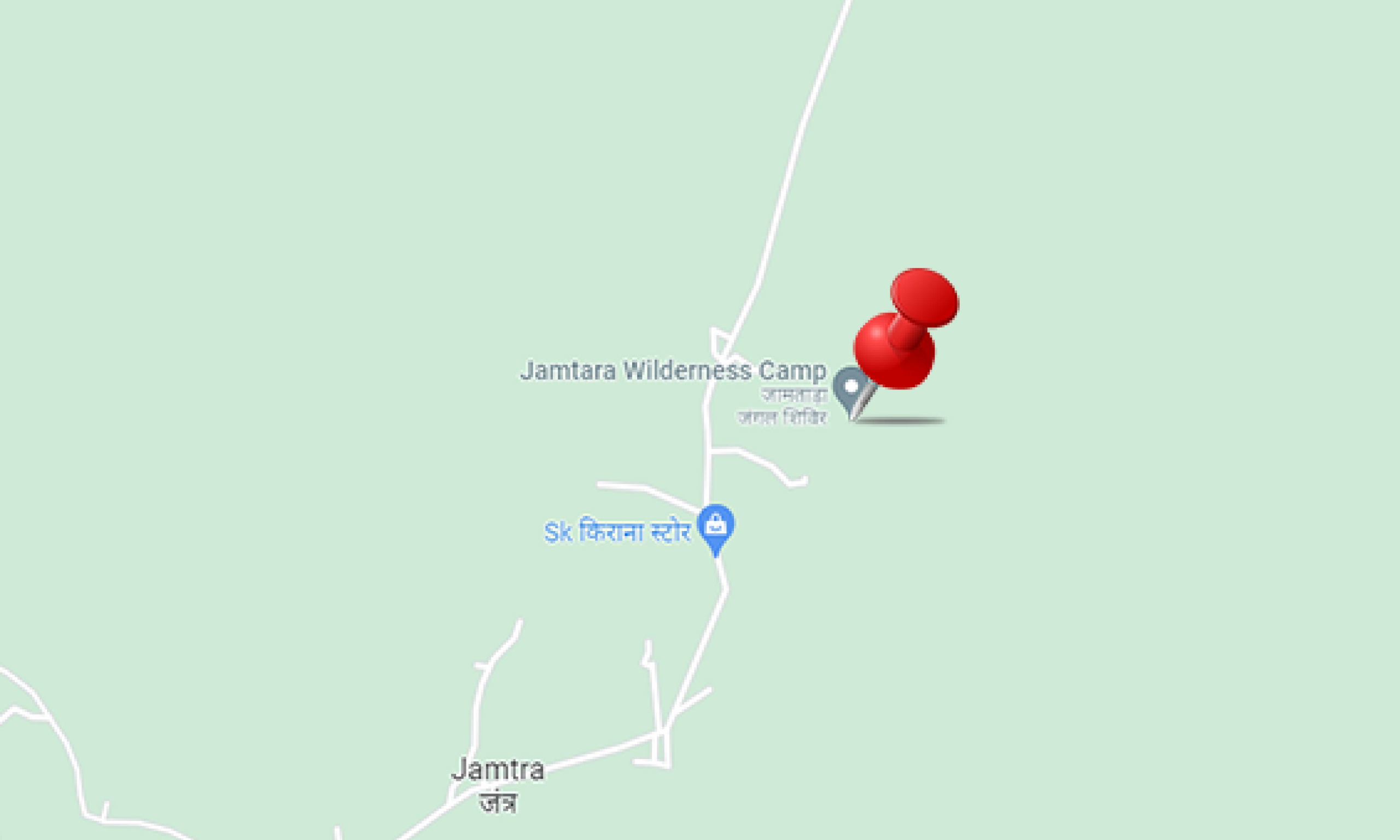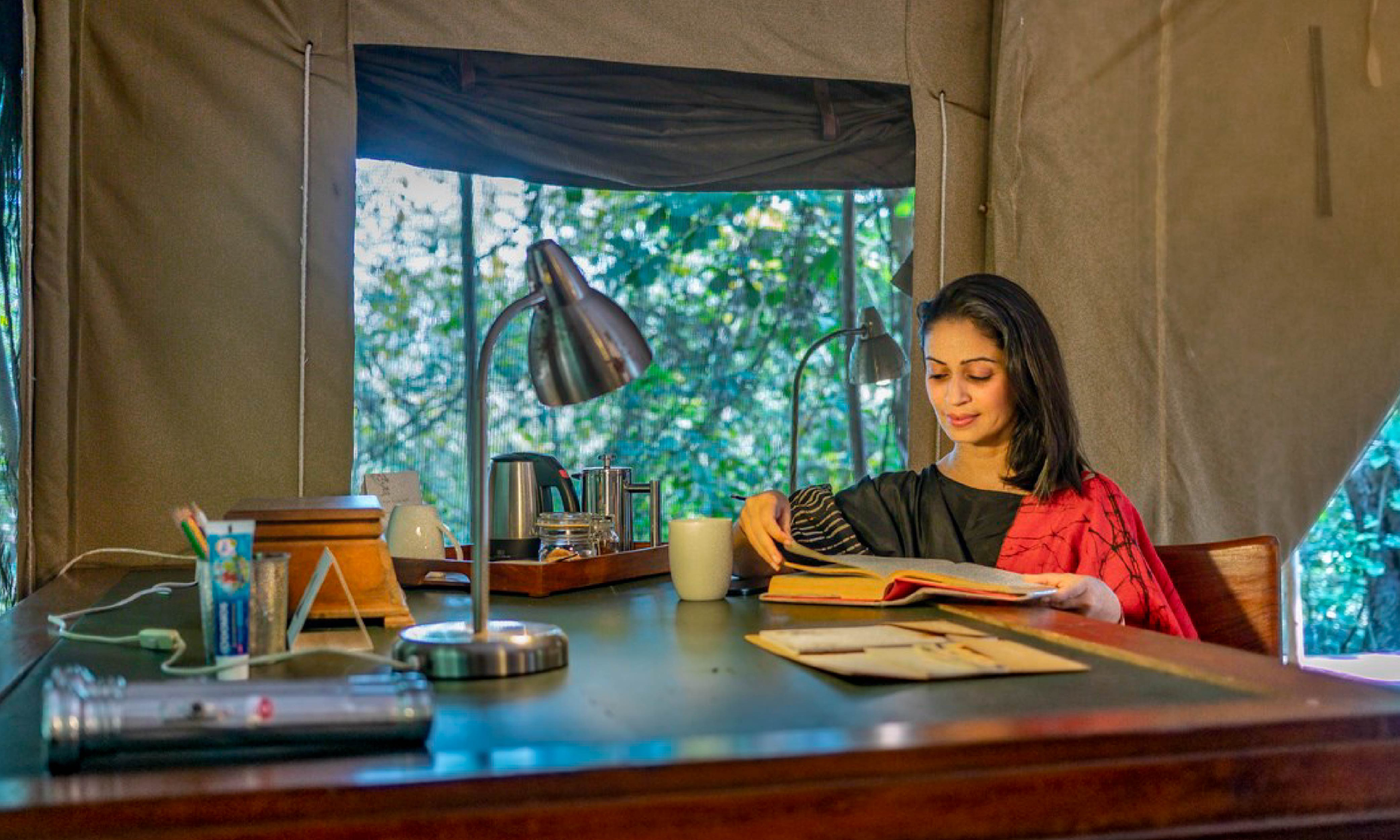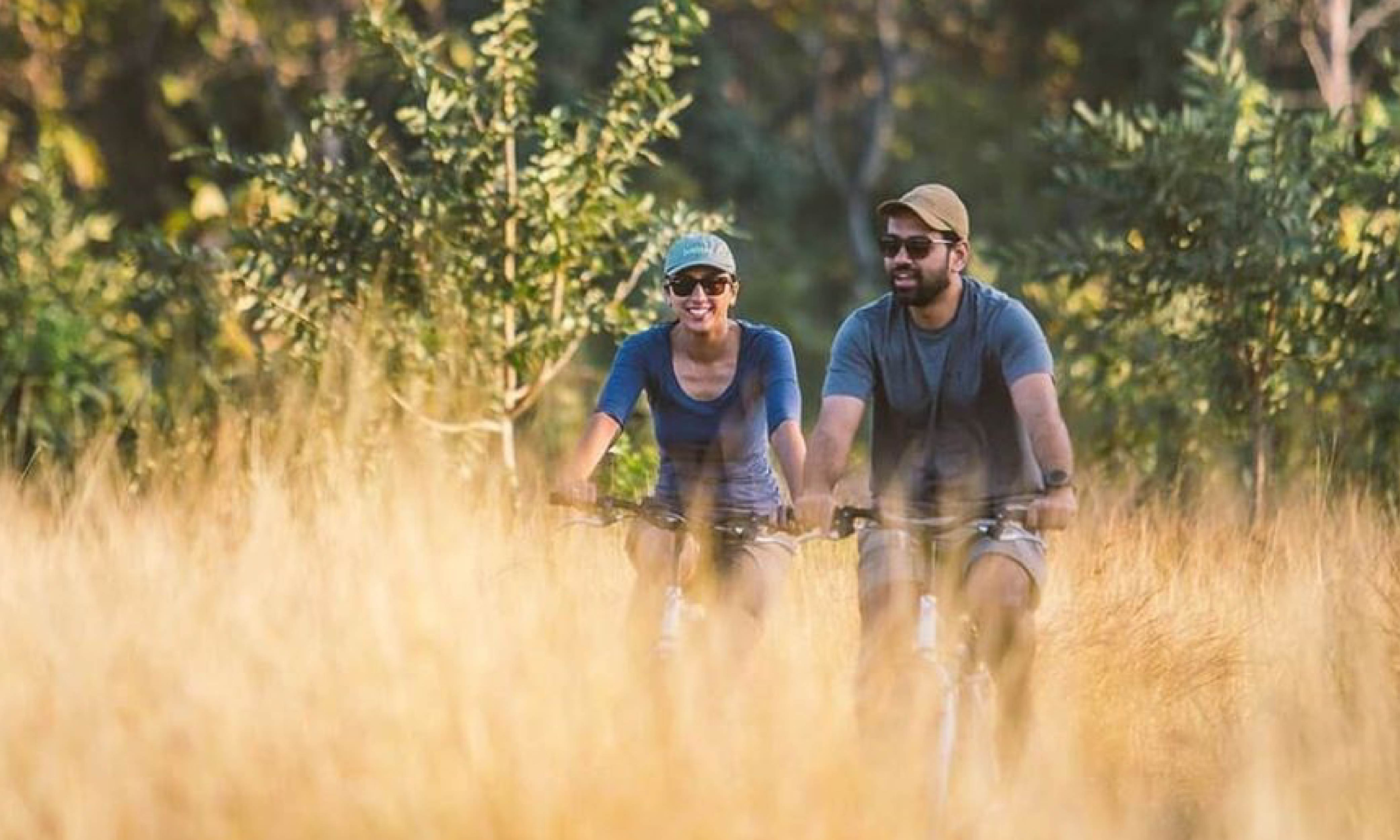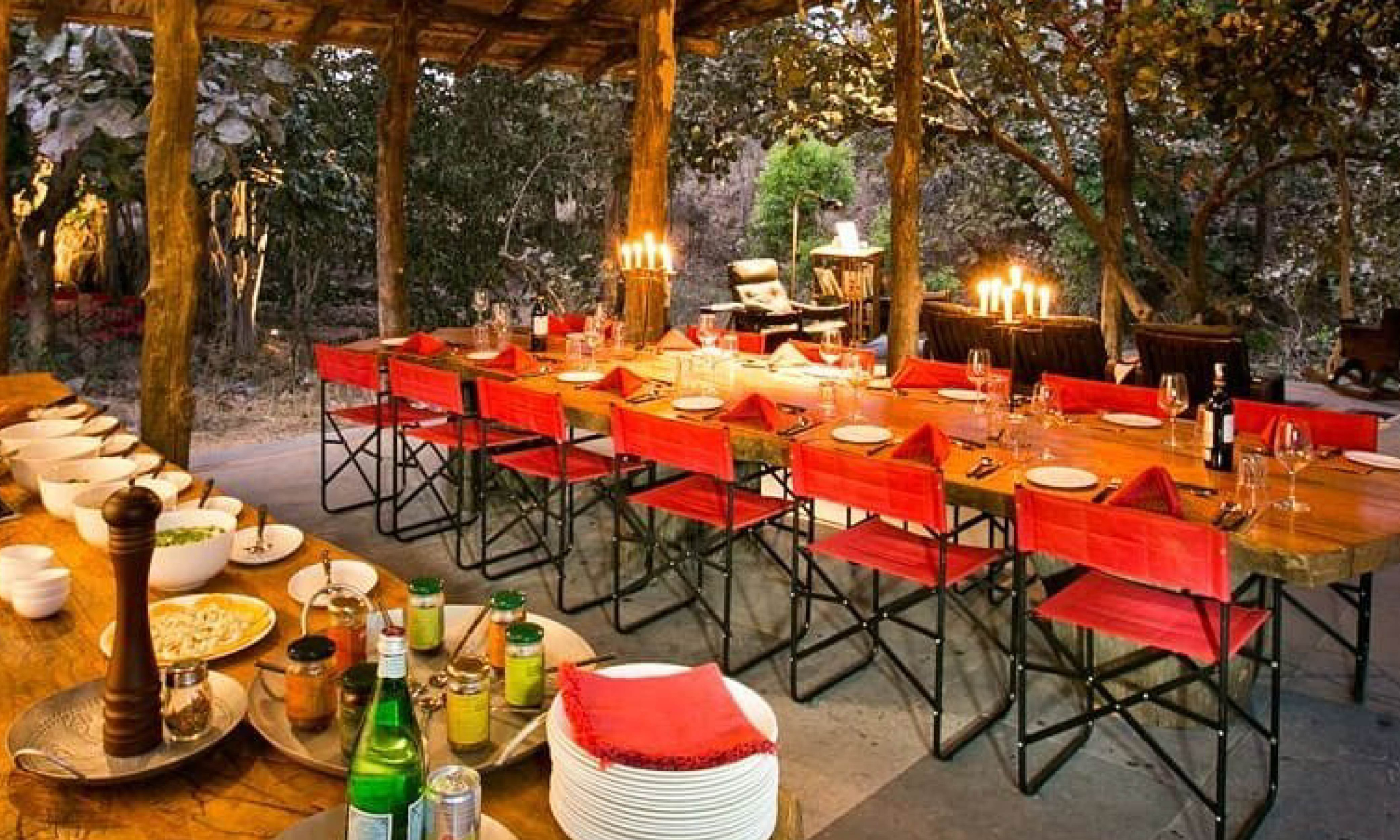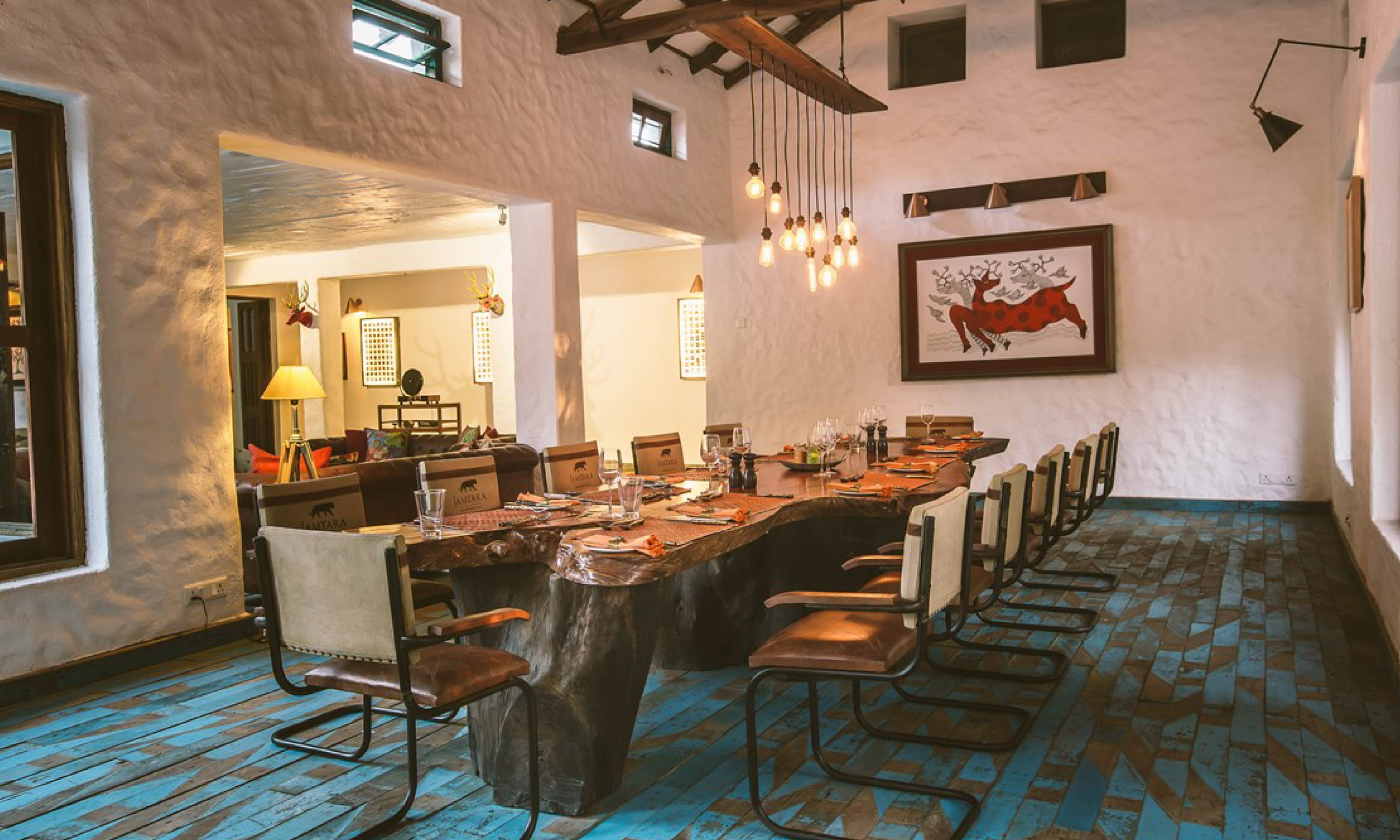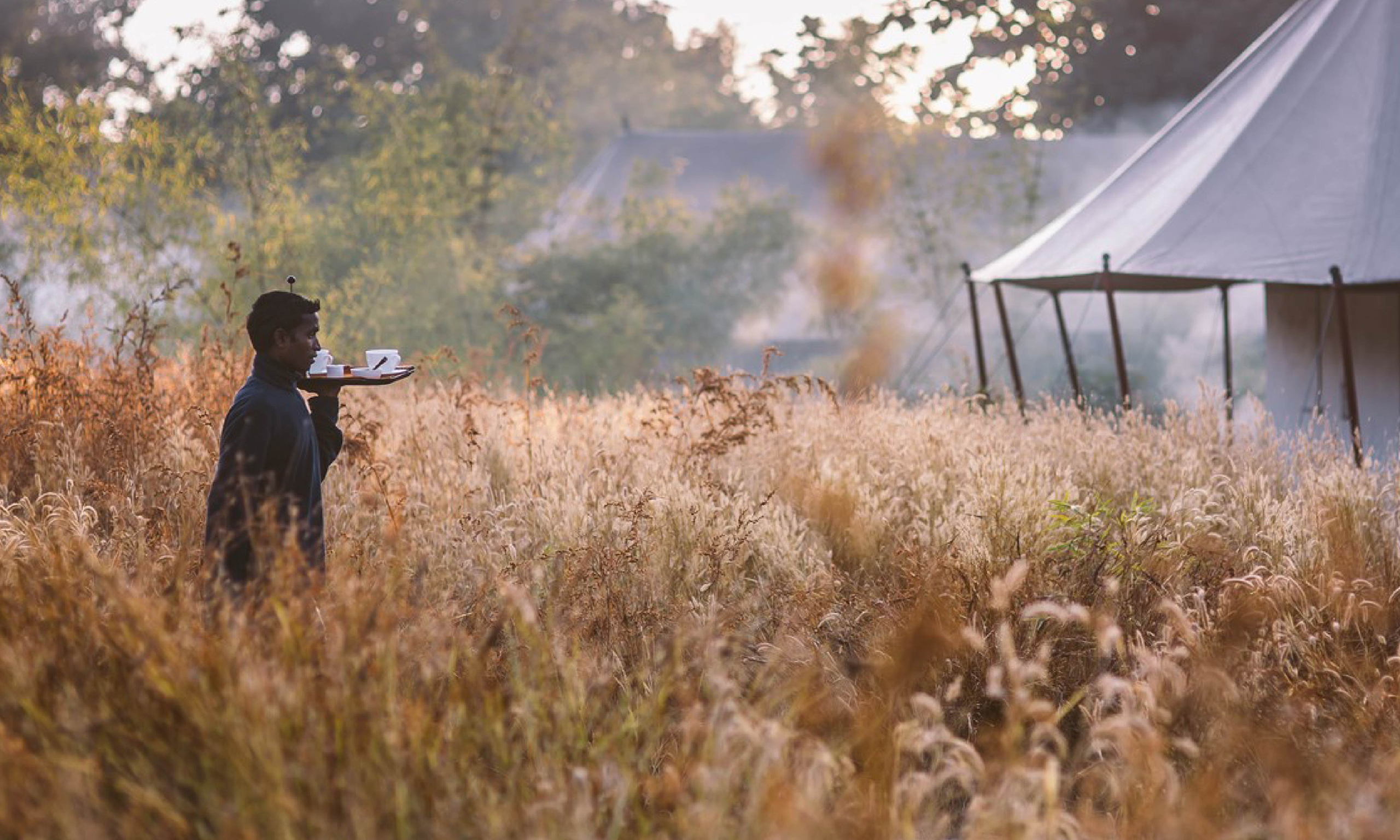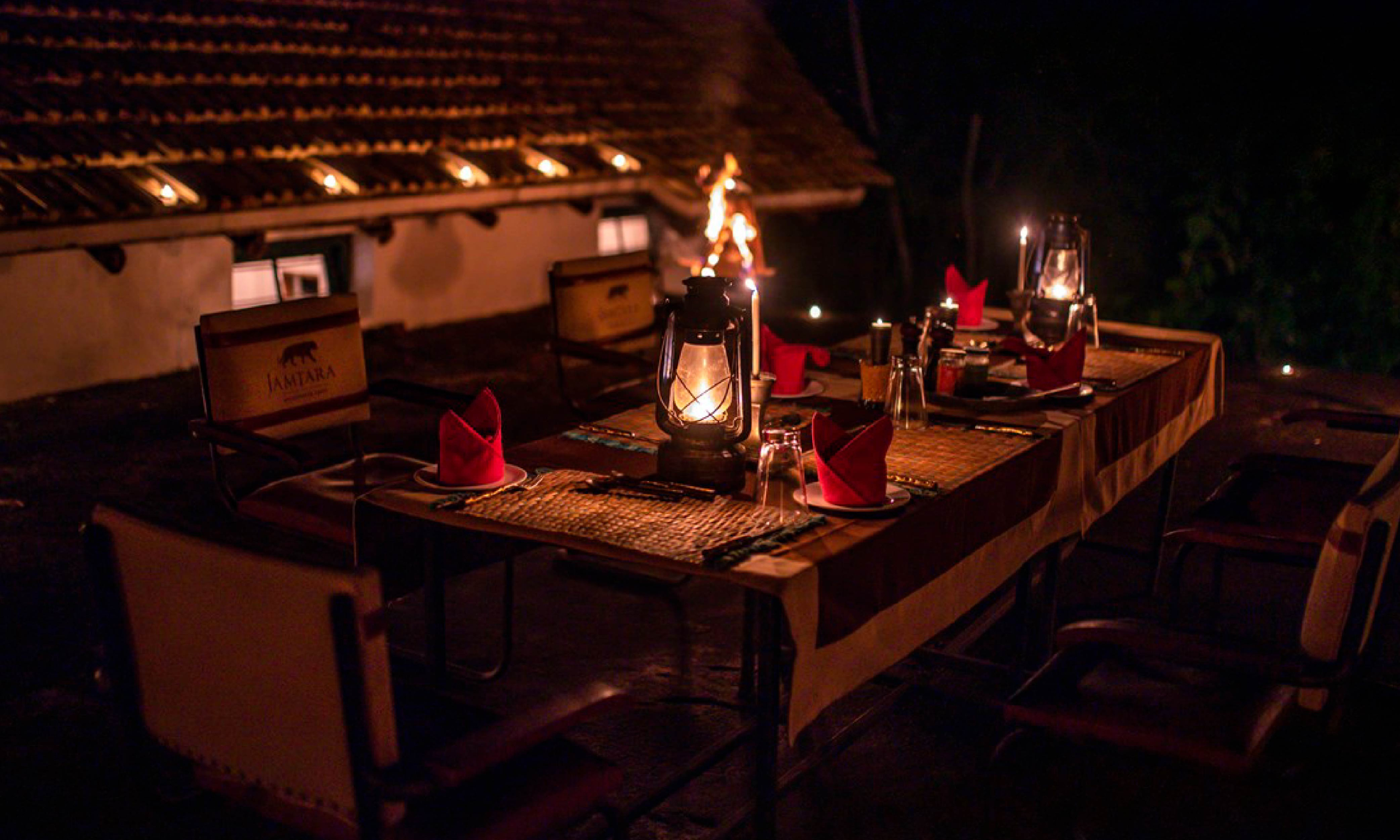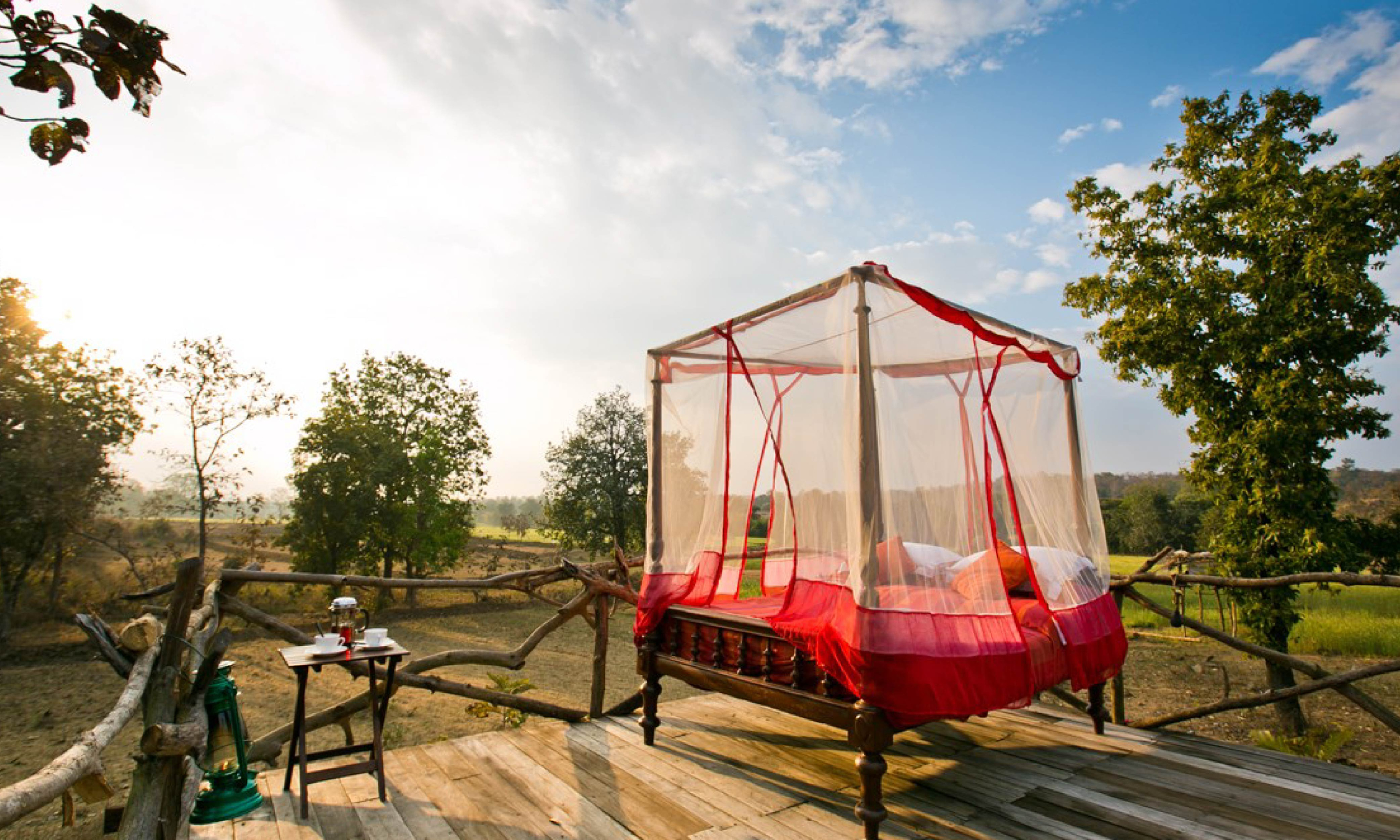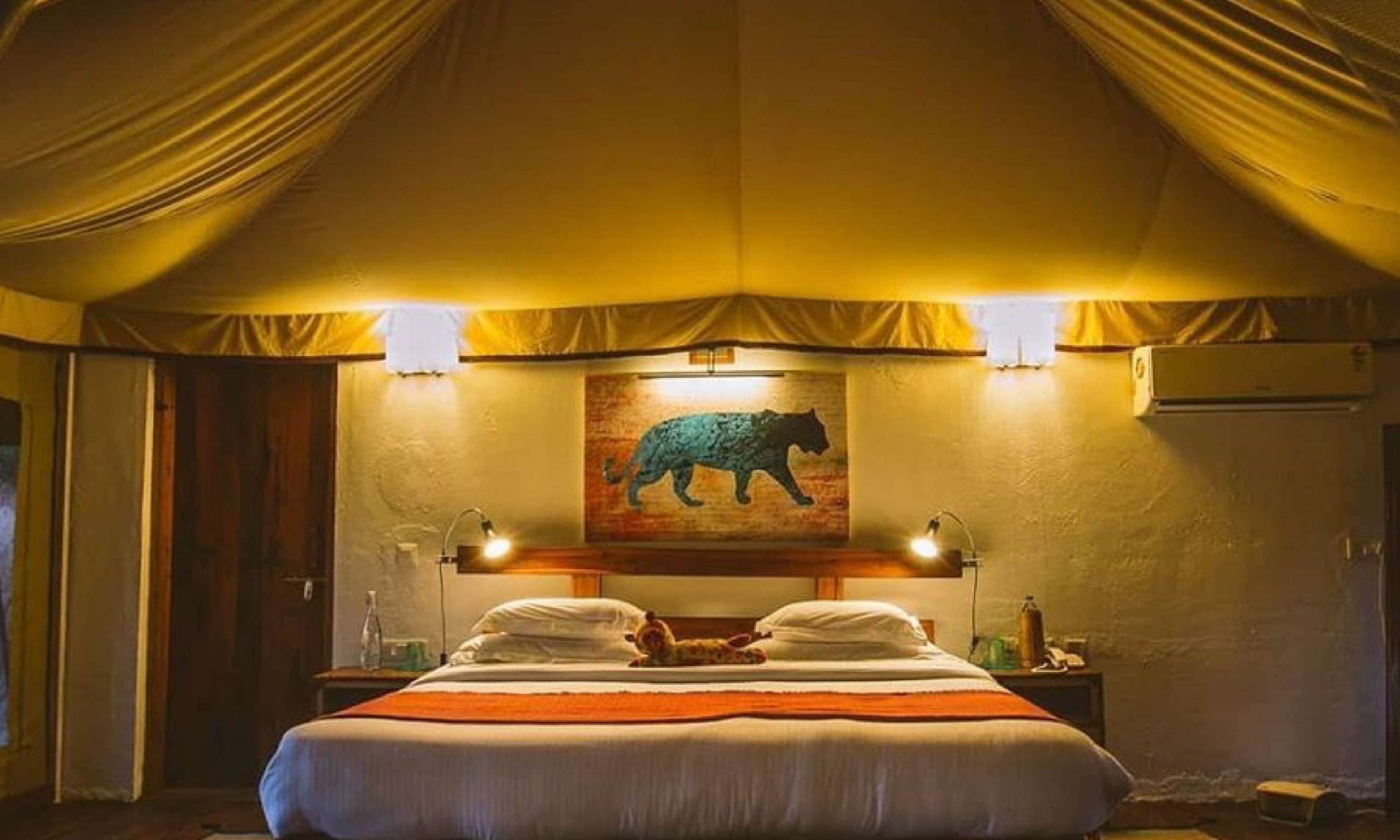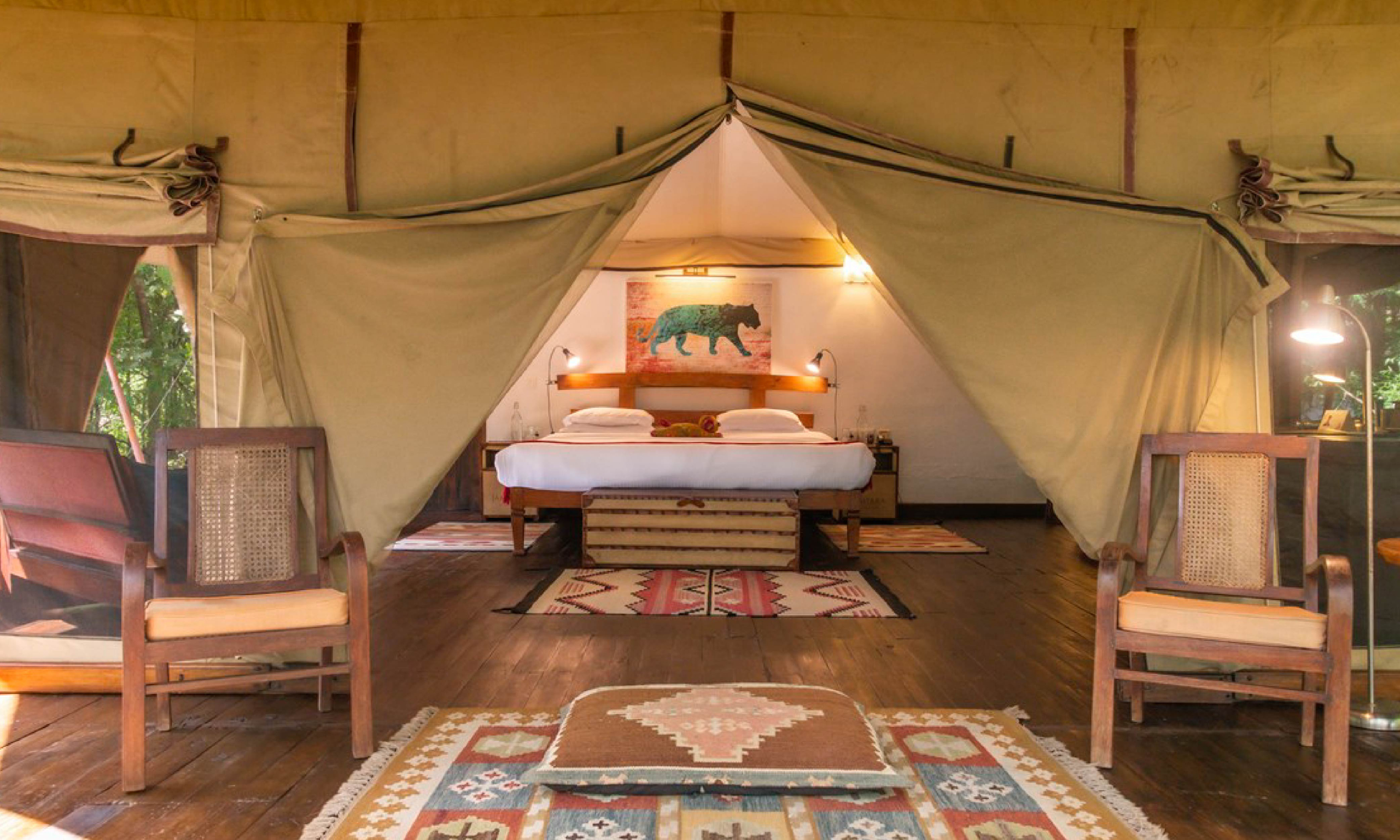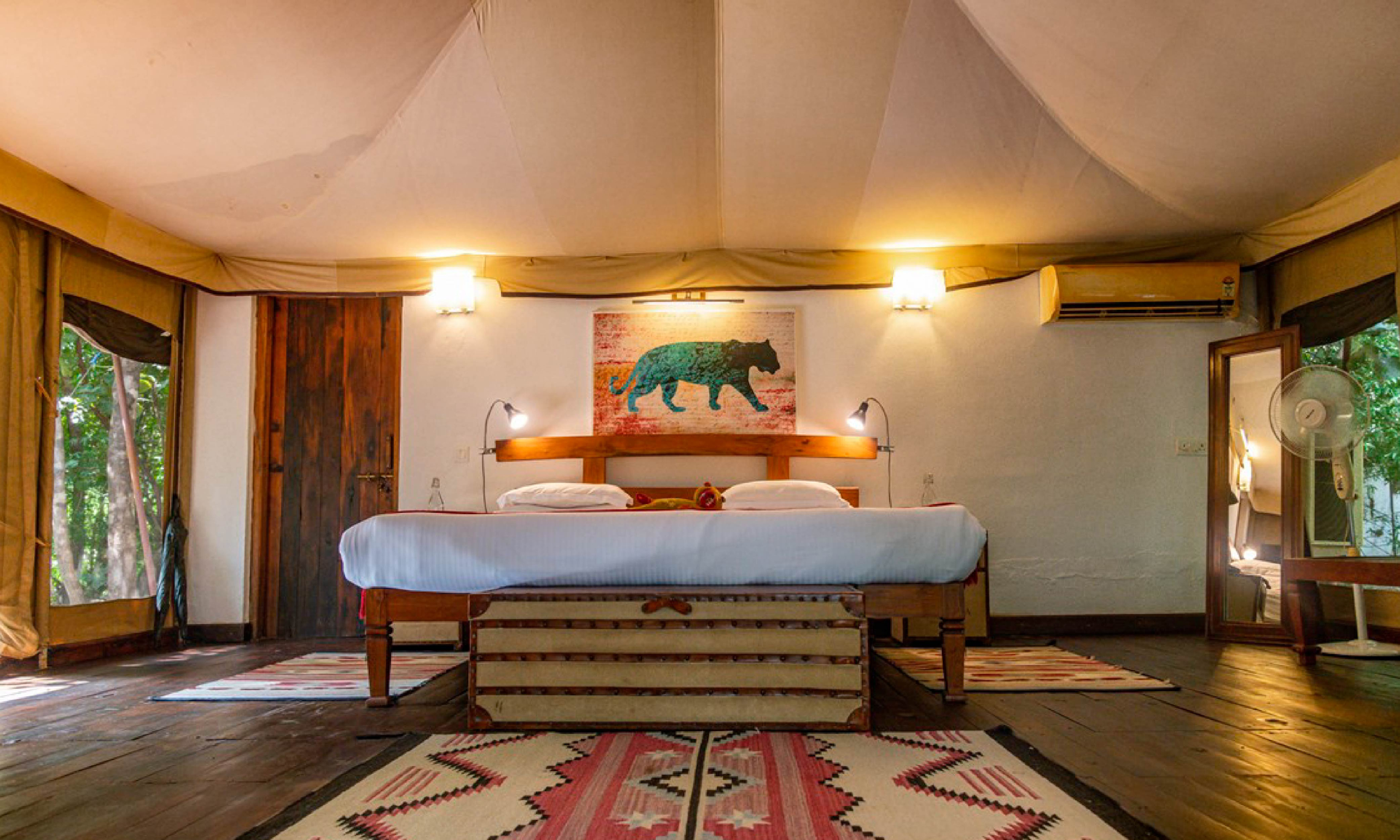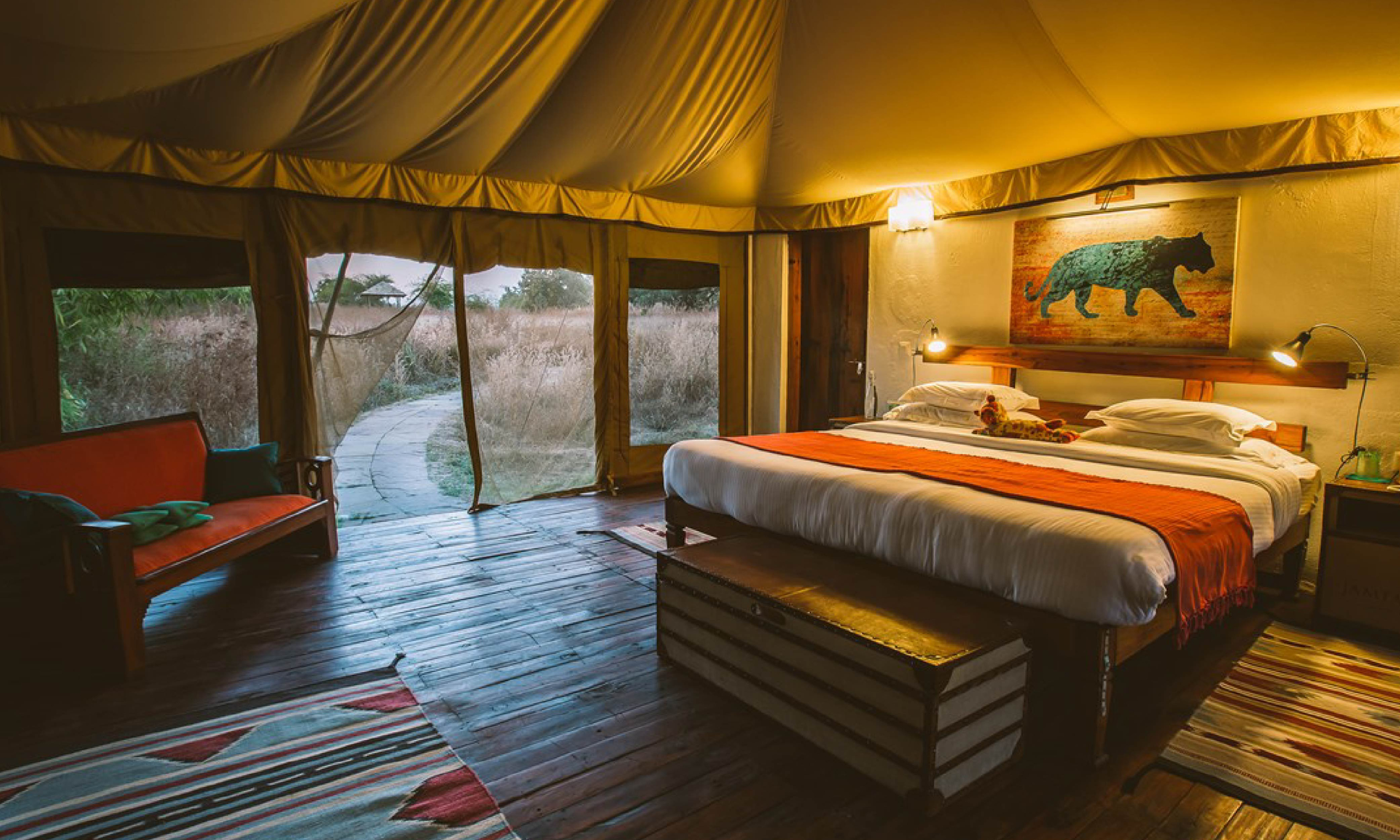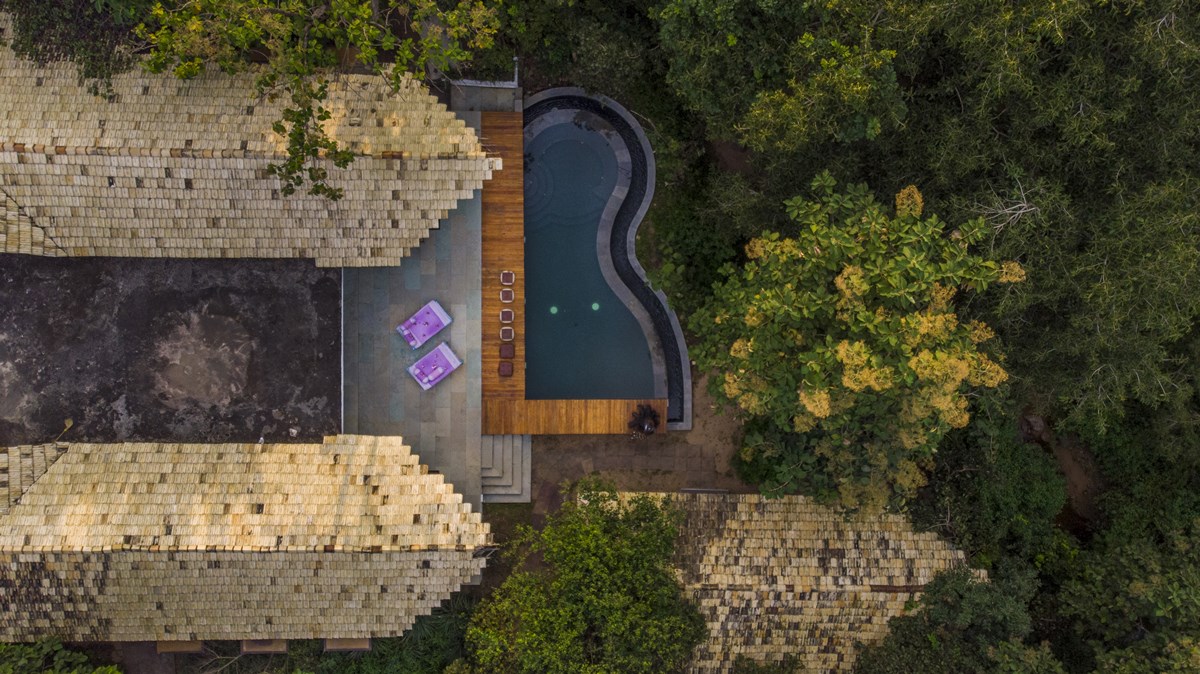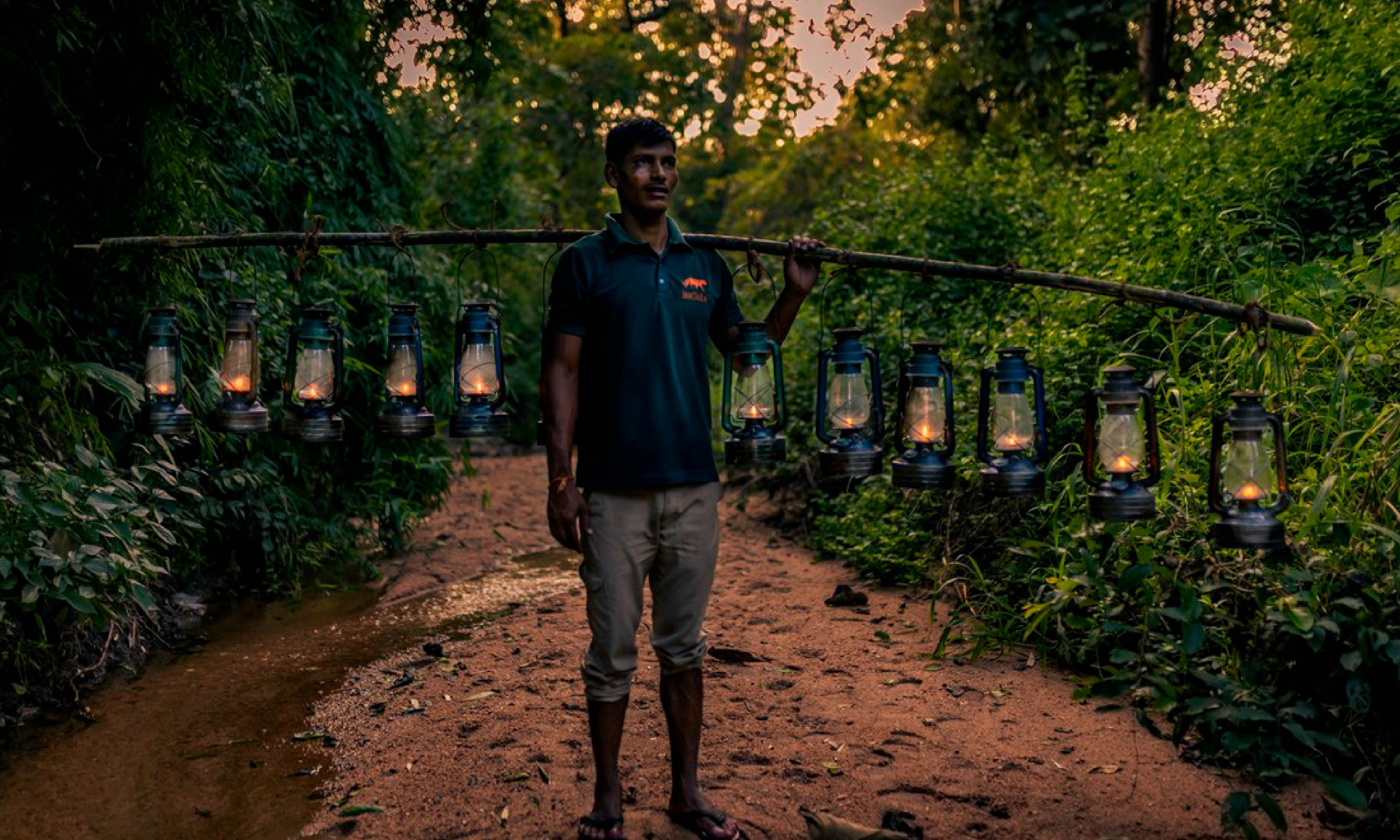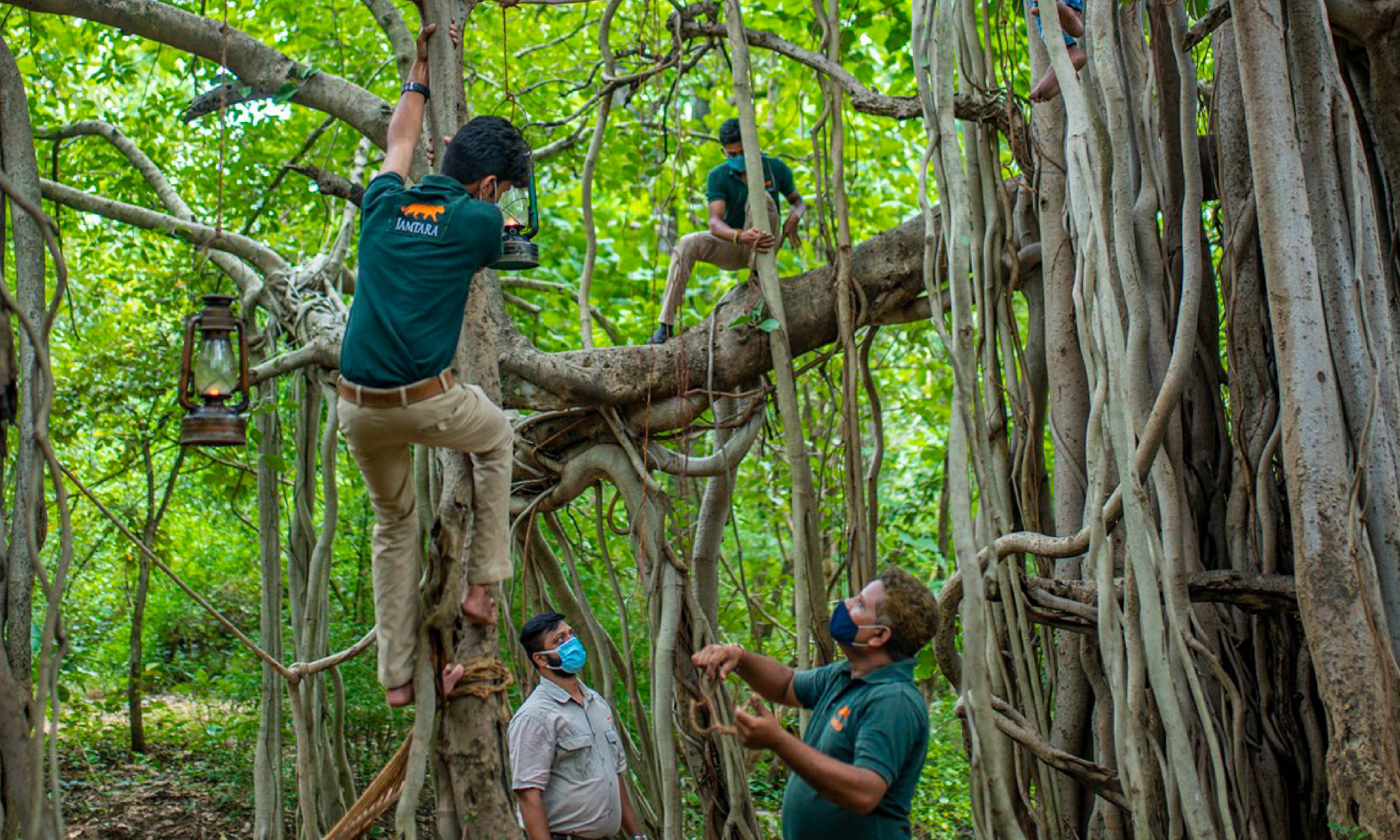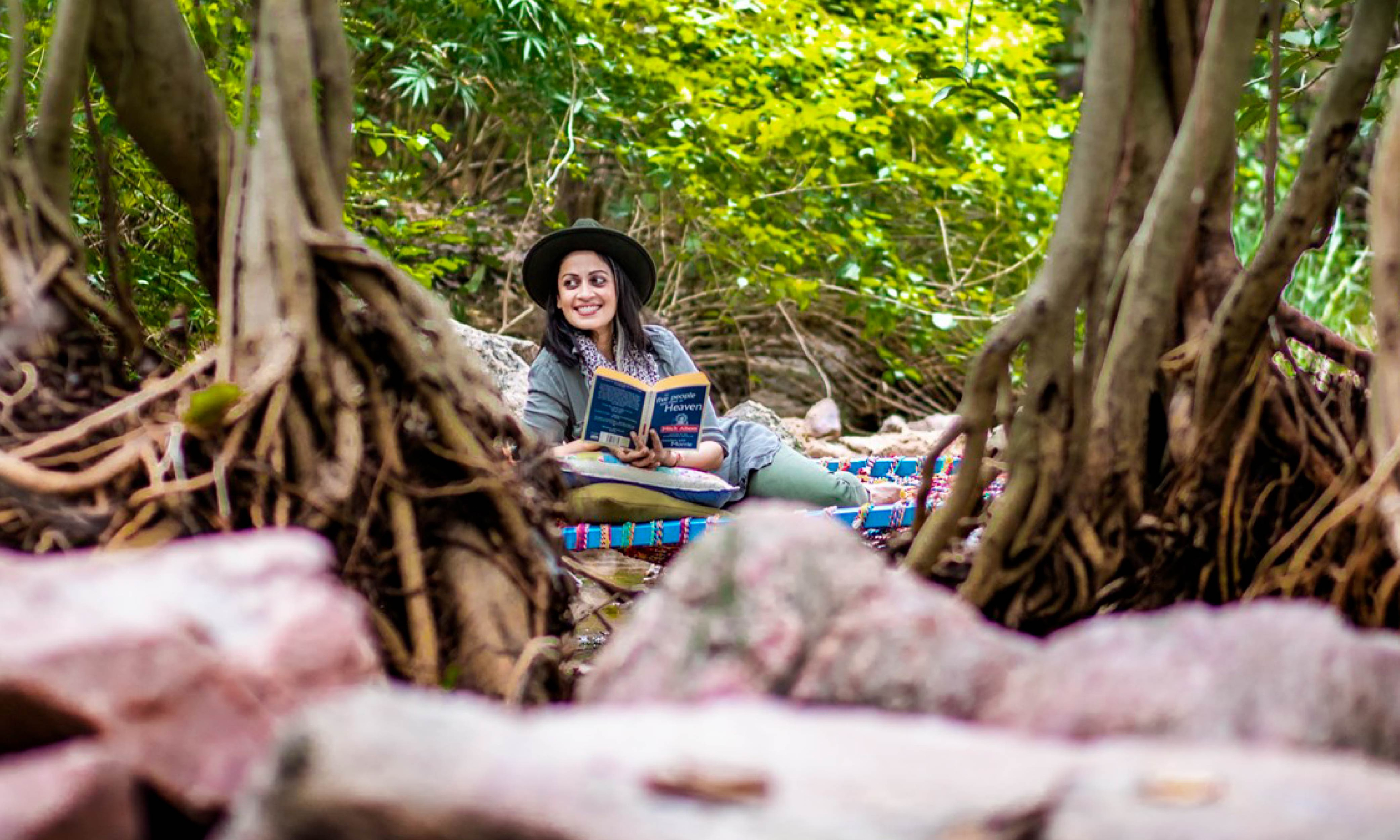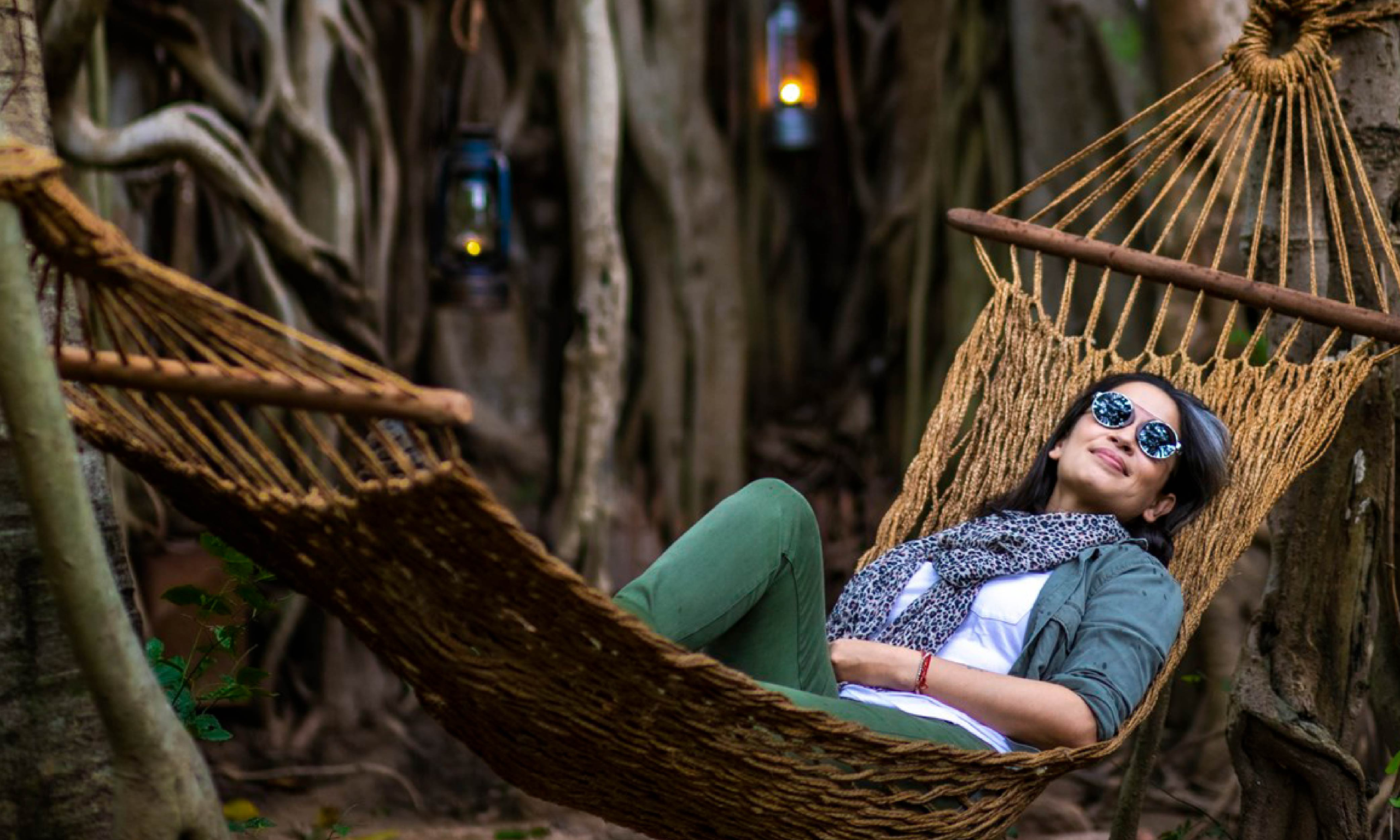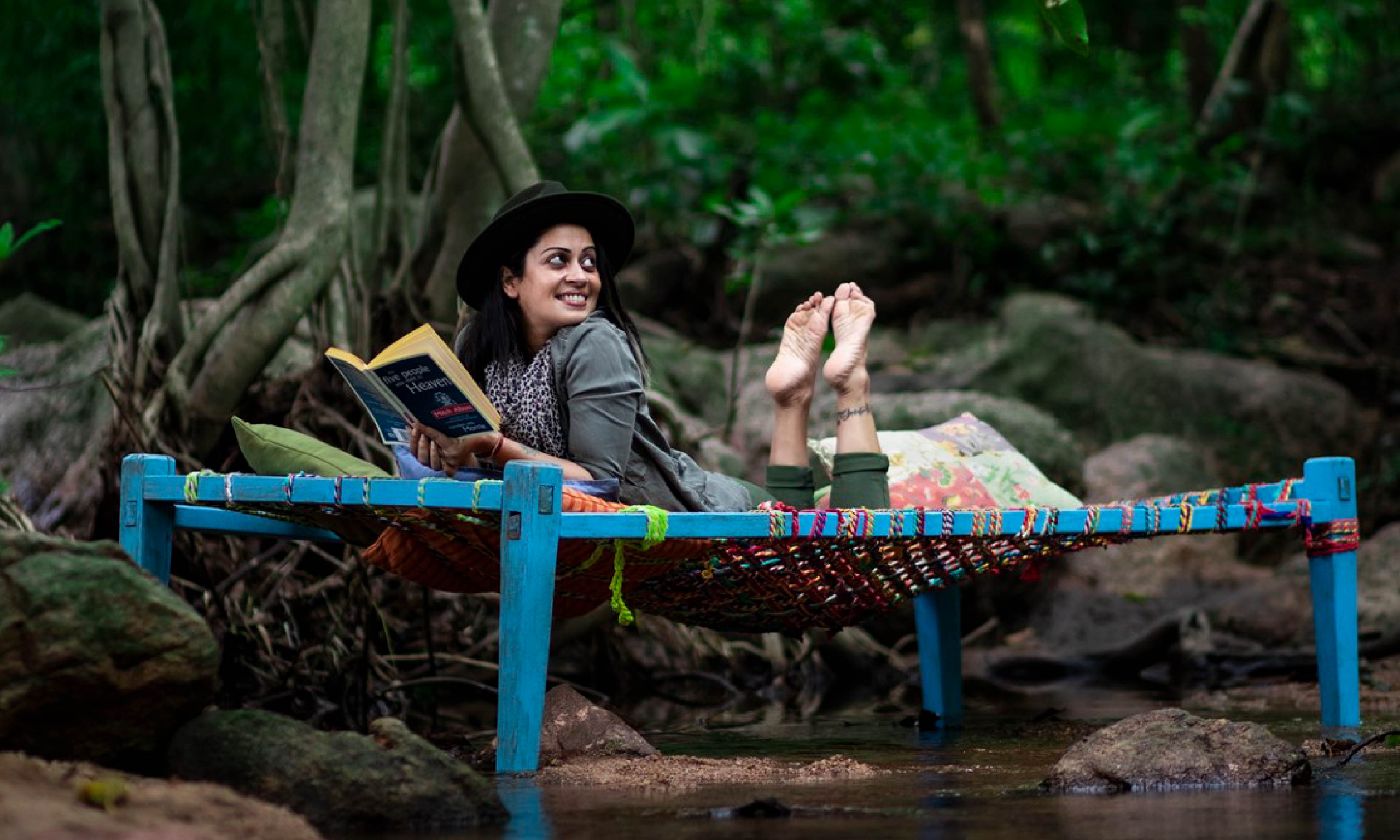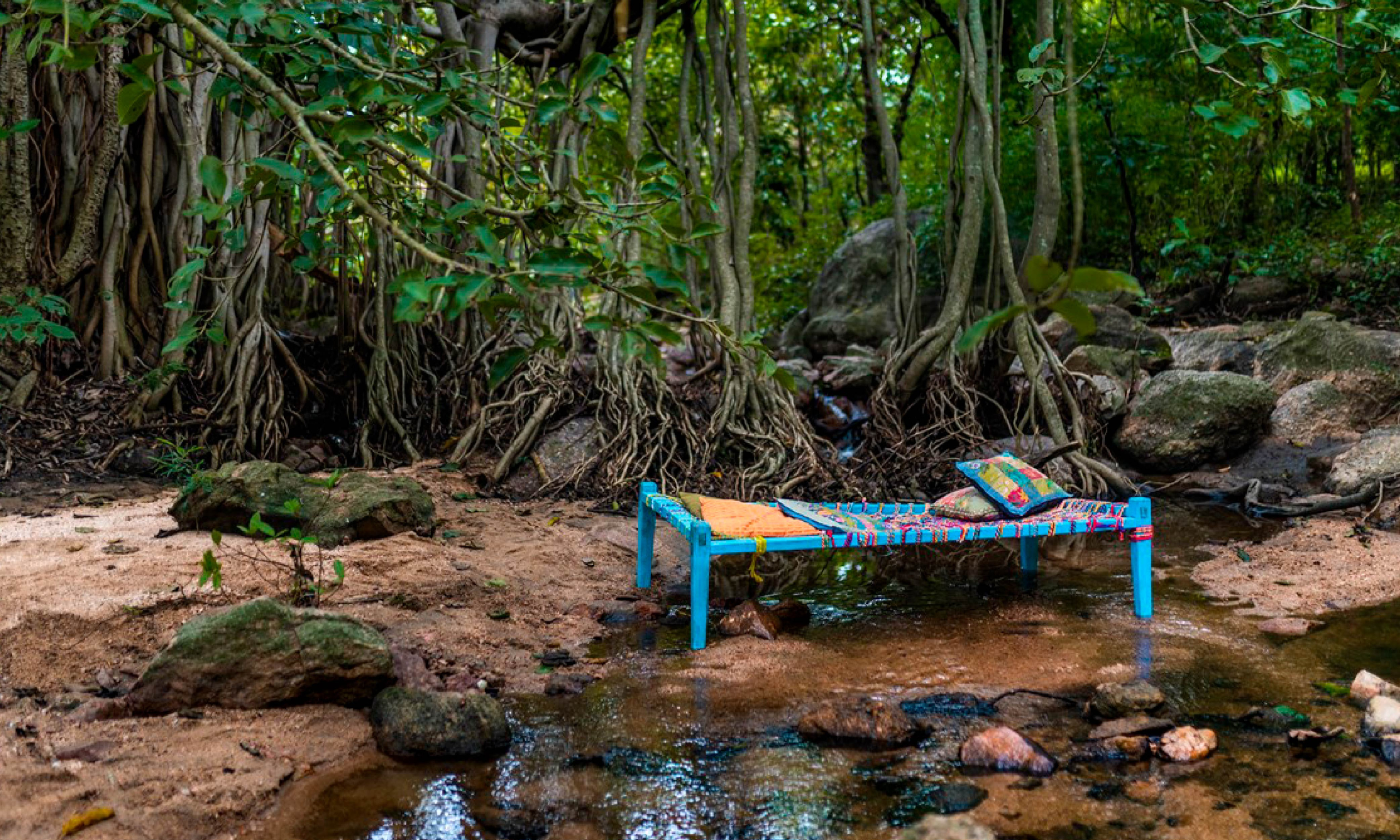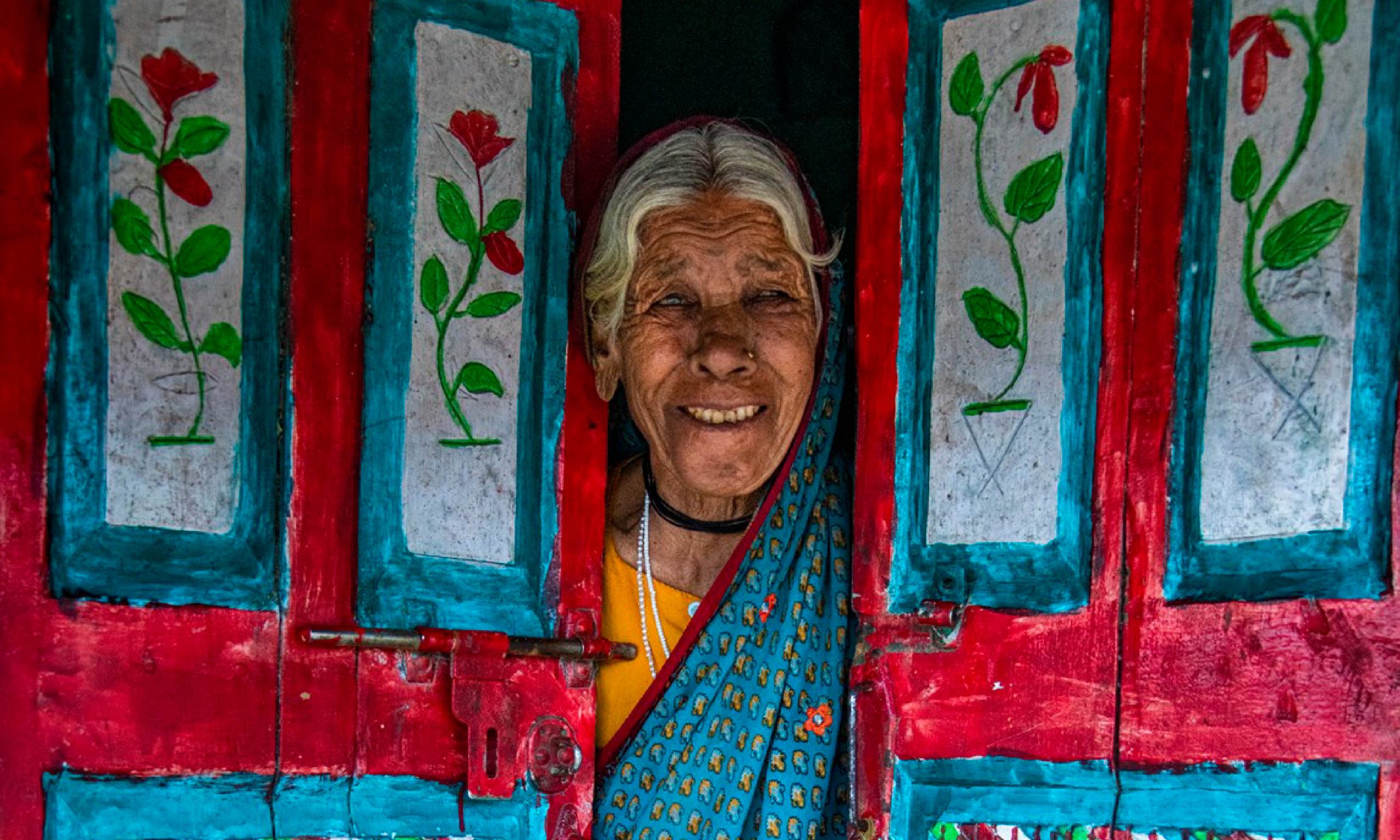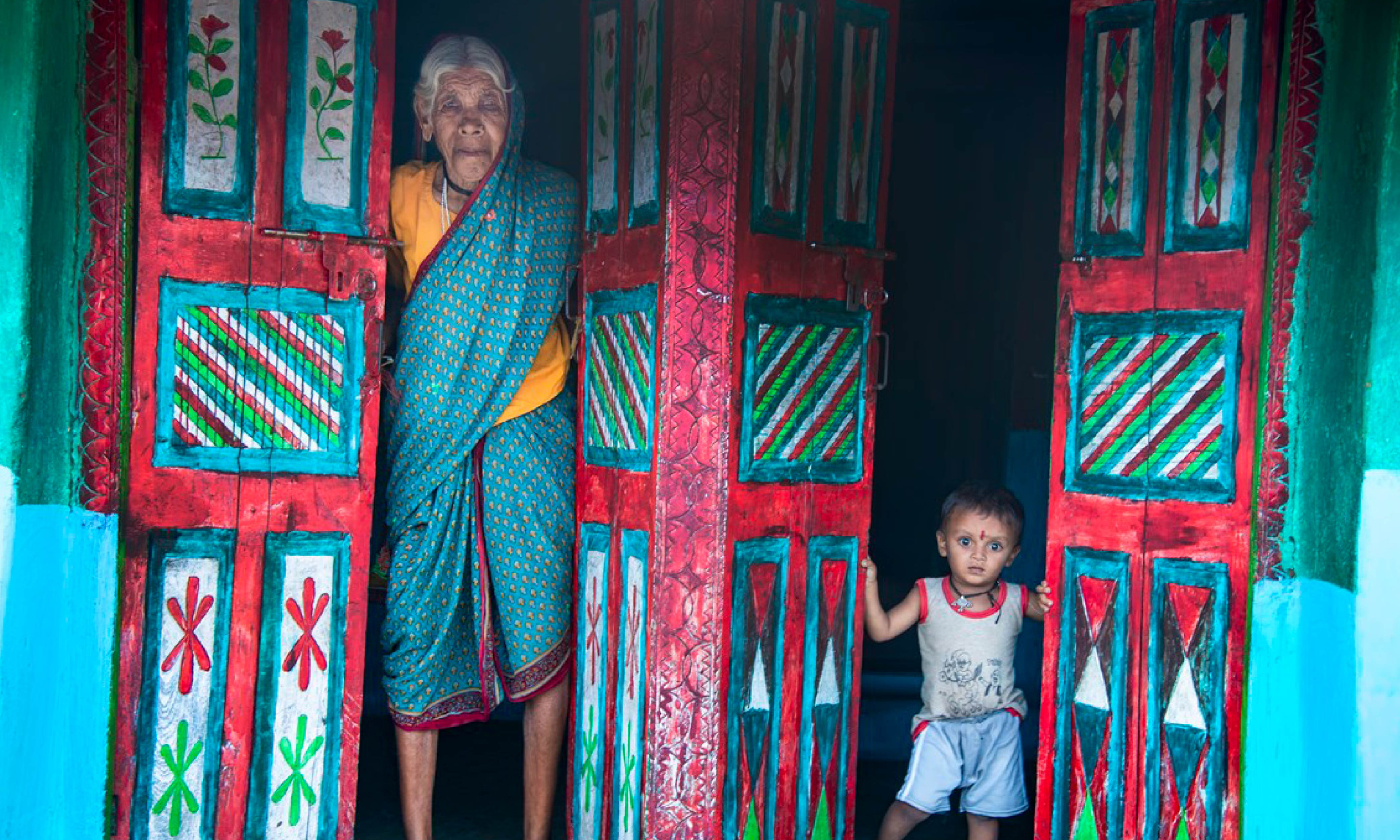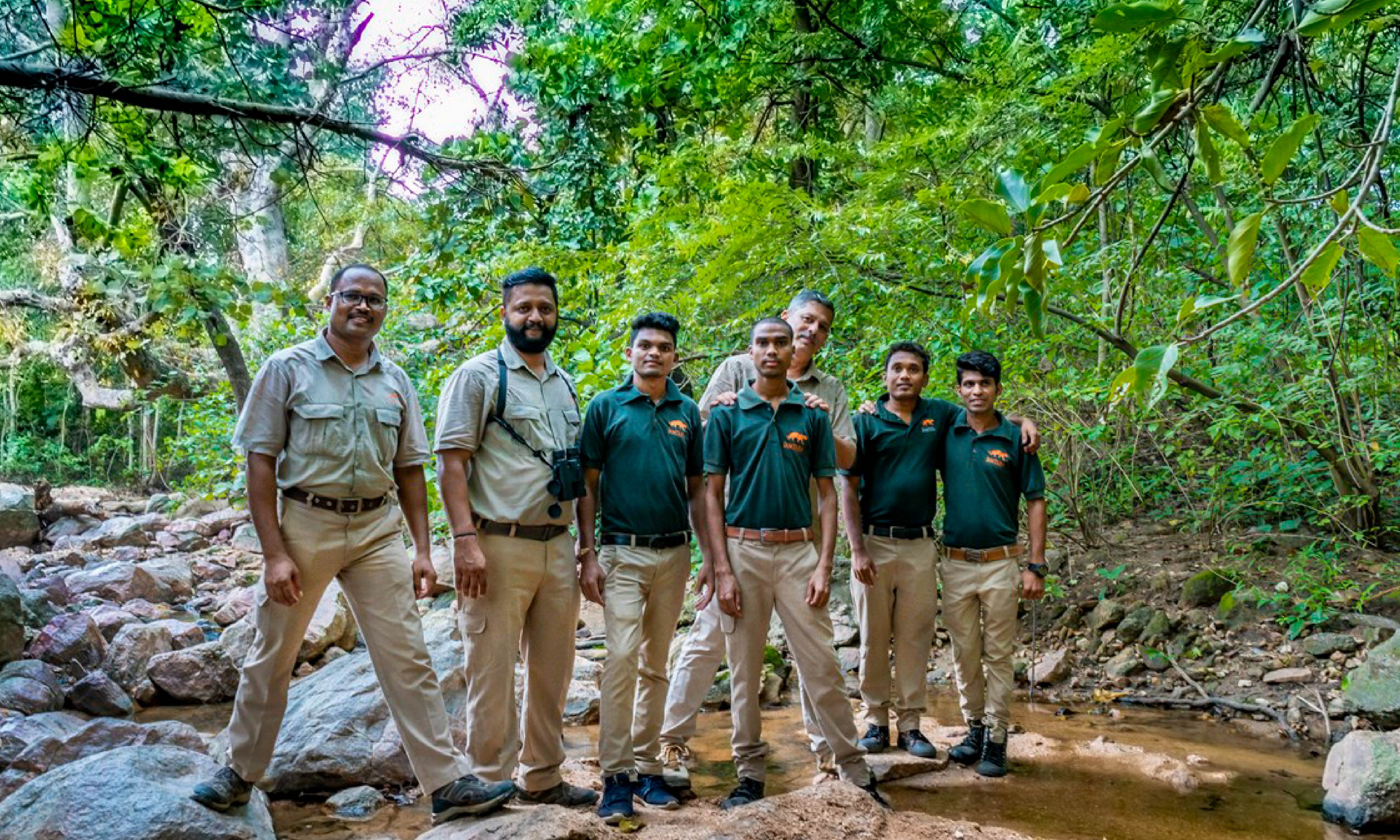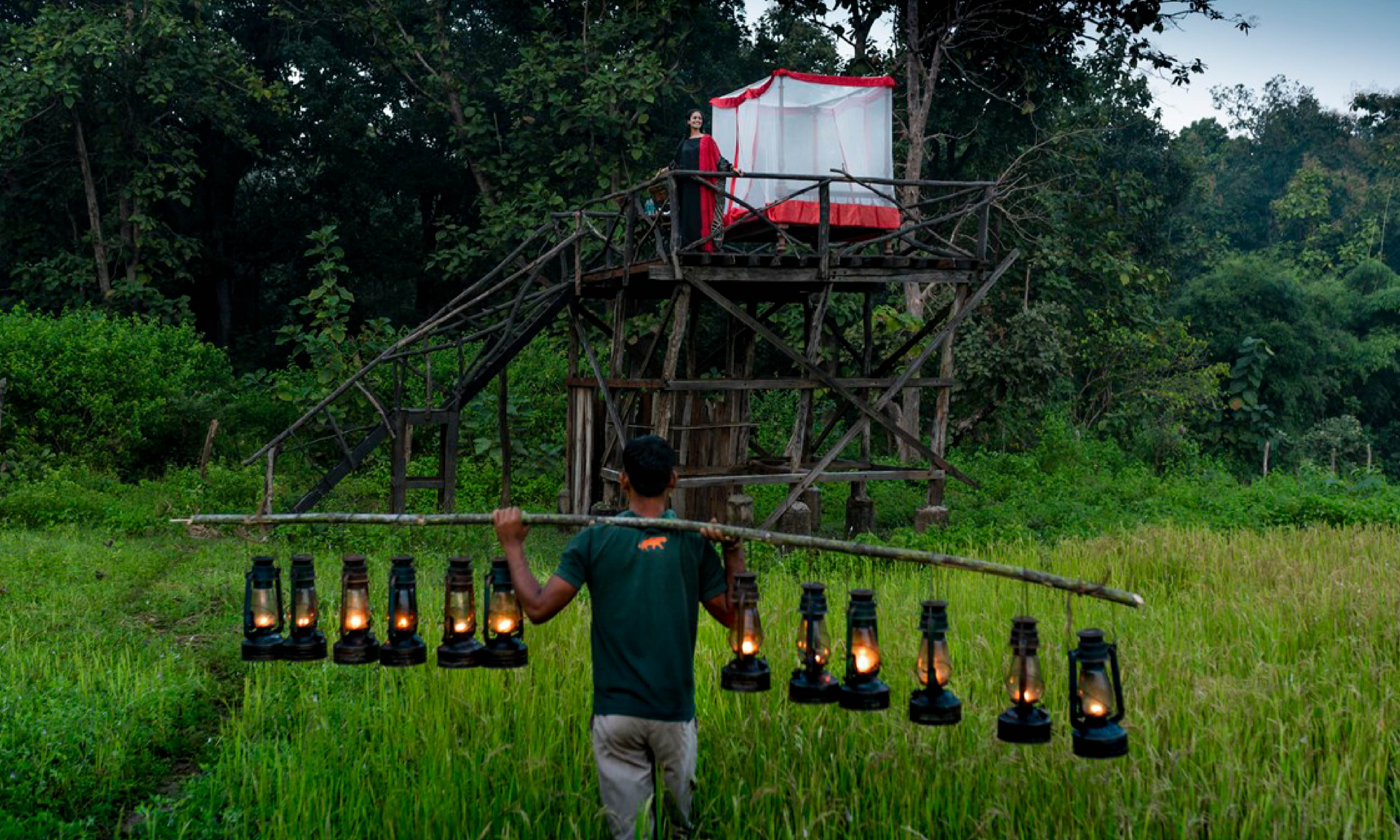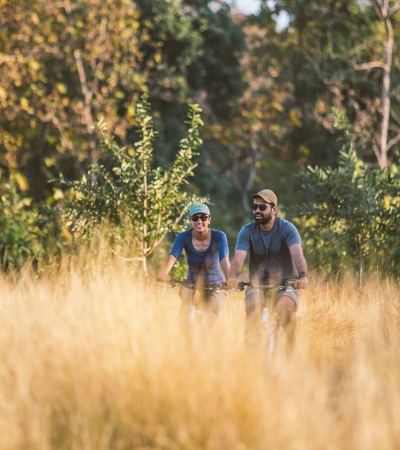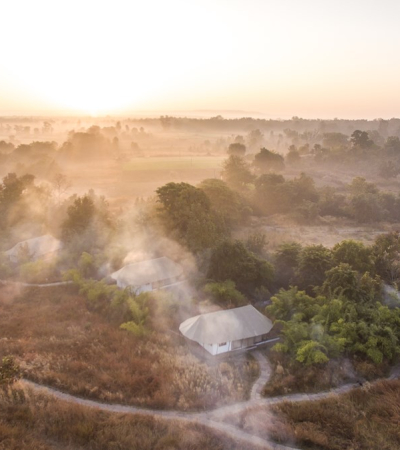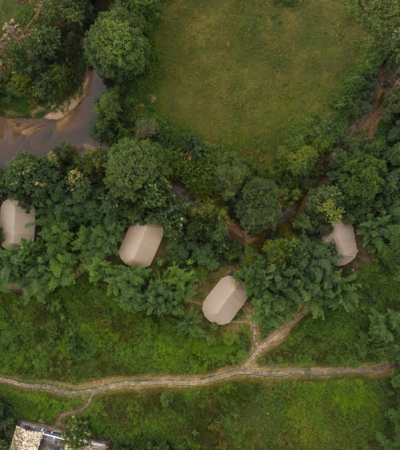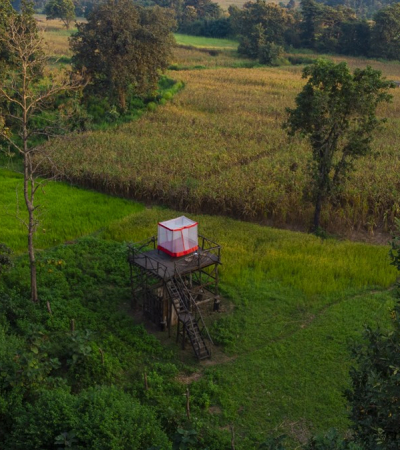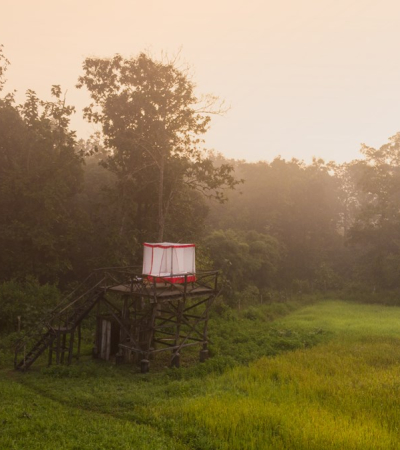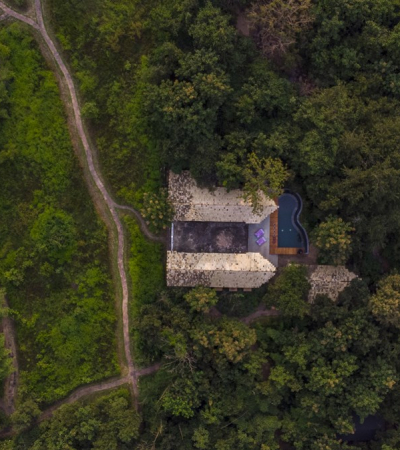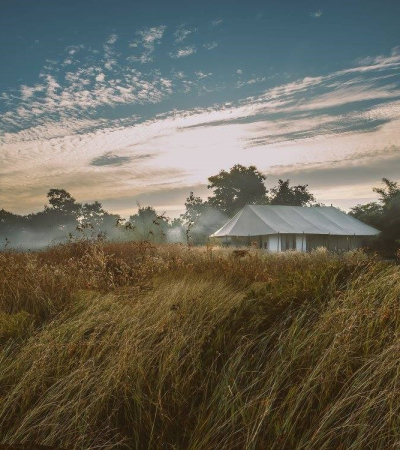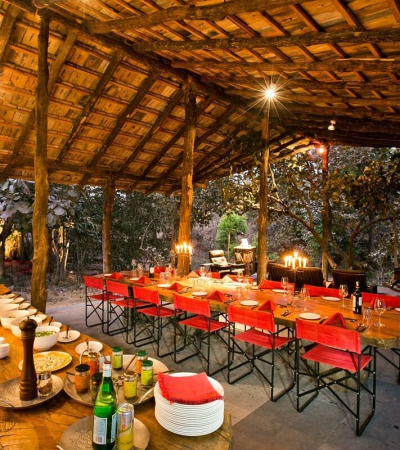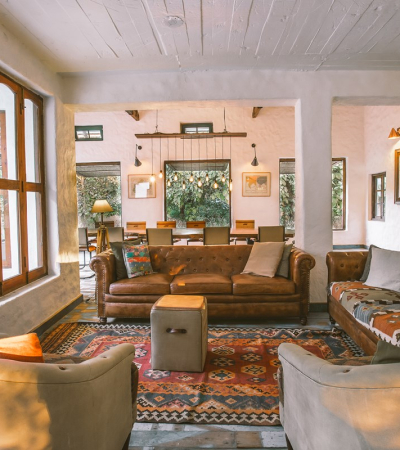The Jamtara Wilderness Camp is for those who prefer rewarding experiences that are off-the-beaten-track. Located in the vast grasslands of Pench, Madhya Pradesh, the camp allows guests to enjoy many unique opportunities while surrounded by raw nature in all its beauty. The flora and fauna of the Pench National Park are distinct which makes it unique among other national parks in India. Situated far away from the much-frequented locales of the park, Jamtara is perfect setting to reconnect with nature in the wilderness that inspired Rudyard Kipling’s The Jungle Book. The ten luxurious tents amidst native Arjuna trees overlooking the forests make the Indian jungle experience spectacular.
There is a plethora of experiences to choose from: jeep safaris, nature walks, and bike rides with a crack team of guides. Guests often lounge on the patio of their luxury tent to gaze into the jungles. For exclusivity, guests can opt for the ‘Star Bed’ to spend a night on a machan while they drift off to sleep to the sounds of wildlife under the night sky.

